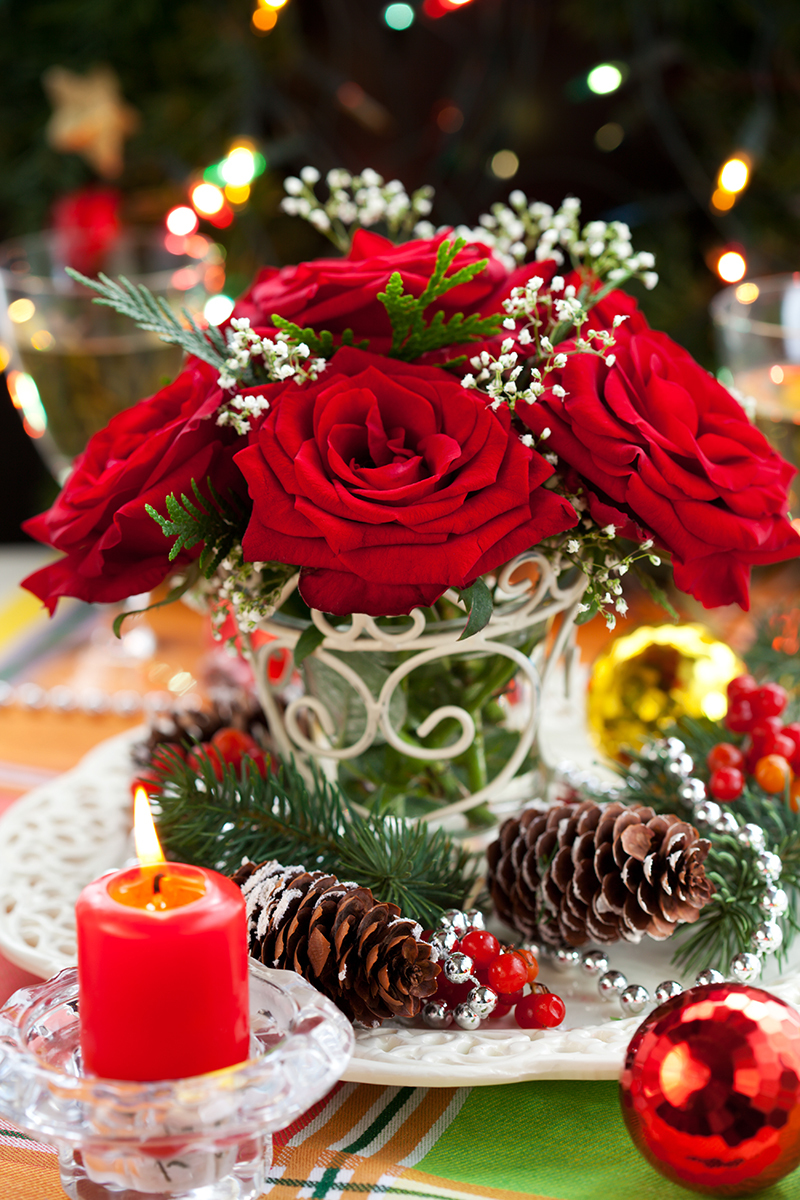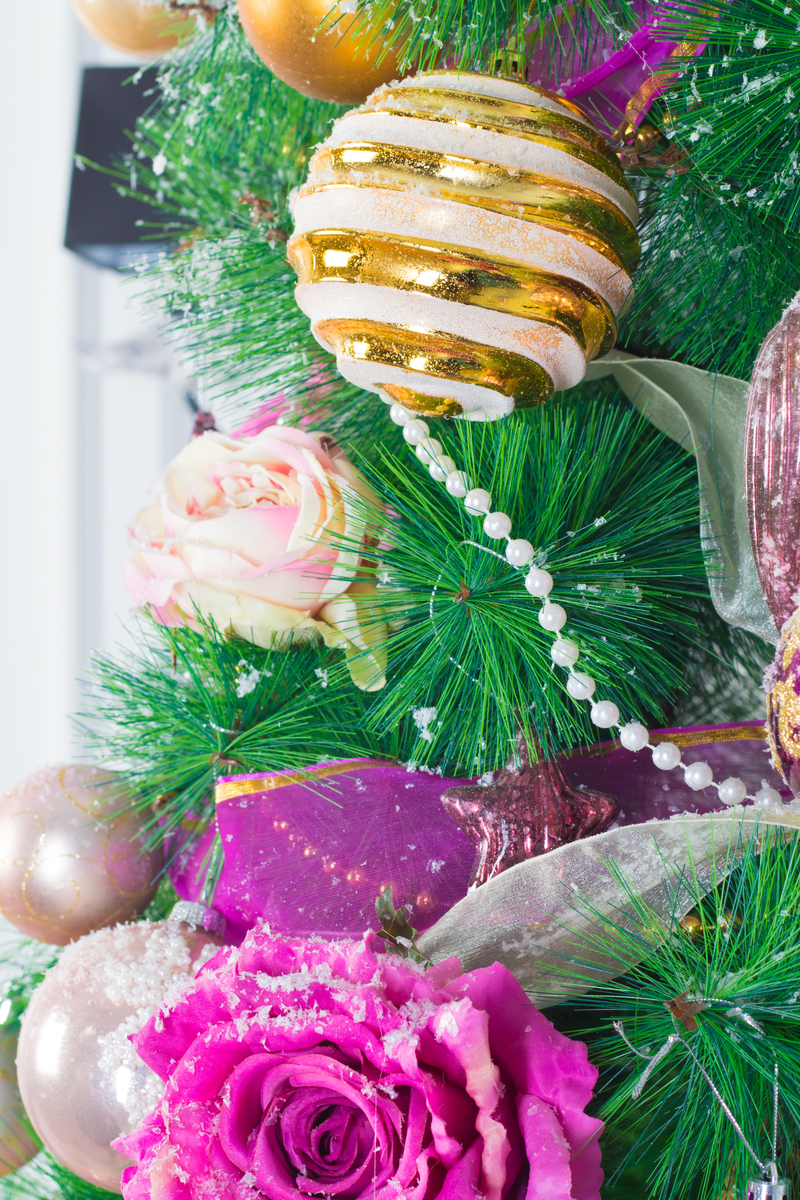What Insights Does Your Birth Flower Offer About Your Traits?
Posted on 13/08/2025
What Insights Does Your Birth Flower Offer About Your Traits?
Have you ever wondered what secrets your birth flower holds about your personality? Just as birthstones have captivated people for centuries, birth flowers offer fascinating clues into our unique characteristics and personal traits. Exploring the meaning behind your birth month flower can provide new perspectives on your strengths, quirks, and even life's journey. In this article, we'll delve into what your birth flower says about you, how these traditions started, and how you can use this floral wisdom in your daily life.
The Historical Significance of Birth Flowers
The tradition of associating flowers with birth months traces back to antiquity. Ancient Romans, Greeks, and Eastern cultures all attributed sacred meaning to various blooms. These flowers weren't only prized for their beauty; they symbolized virtues, emotions, and spiritual qualities. By the 18th century, the language of flowers--floriography--flourished in Victorian England, enabling people to communicate subtleties that words couldn't express. Today, birth flowers continue to enchant us, offering a poetic lens to examine personality traits based on our birth month.

The Birth Flower Calendar: A Month-by-Month Guide
Every month is adorned with its own special flower--or sometimes, a pair of blooms. Let's explore what insights these birth flowers offer about your traits and characteristics.
January: Carnation & Snowdrop
- Carnation: Symbolizes love, fascination, and distinction. January-born individuals are known for their strong will, loyalty, and determination. Their ability to bring warmth to chilly situations mirrors the carnation's bright colors blooming in winter.
- Snowdrop: Signifies hope and rebirth. Those aligned with the snowdrop are gentle, optimistic, and resilient--offering comfort and renewal even in difficult times.
February: Violet & Primrose
- Violet: Associated with modesty, sincerity, and spiritual wisdom. People with the violet as their birth month flower are typically humble, loyal, and deeply empathetic.
- Primrose: Represents youth and new beginnings. February individuals are nurturing, enthusiastic, and often the first to offer support or initiate fresh starts.
March: Daffodil
- Daffodil: Embodies renewal, hope, and joy. March-born personalities are energetic, optimistic, and resilient--always ready to embrace change and seek out brighter days.
April: Daisy & Sweet Pea
- Daisy: Stands for innocence, purity, and new beginnings. April babies tend to be cheerful, honest, and full of youthful wonder.
- Sweet Pea: Symbolizes bliss and gratitude. Those born in April may find themselves drawn to sincere relationships and spreading happiness.
May: Lily of the Valley & Hawthorn
- Lily of the Valley: Associated with humility, sweetness, and a return to happiness. May individuals are gentle, thoughtful, and reliable friends.
- Hawthorn: Represents hope and supreme happiness. May-born people are supportive, optimistic, and radiate joyful energy.
June: Rose & Honeysuckle
- Rose: Symbolizes love, passion, and devotion. June babies are romantic, compassionate, and appreciative of beauty in life and relationships.
- Honeysuckle: Stands for happiness and unwavering bonds. June-born tend to value loyalty and joyful memories.
July: Larkspur & Water Lily
- Larkspur: Associated with lightness, positivity, and open heart. July individuals are imaginative, friendly, and easy-going.
- Water Lily: Symbolizes enlightenment and purity of soul. Those born in July are intuitive, peaceful, and often drawn to spiritual pursuits.
August: Gladiolus & Poppy
- Gladiolus: Stands for strength, integrity, and infatuation. August-born are courageous, ambitious, and devoted to those they love.
- Poppy: Represents remembrance and imagination. August personalities are creative, visionary, and often inspire others with their ideas.
September: Aster & Morning Glory
- Aster: Symbolizes wisdom, virtue, and elegance. September individuals are thoughtful, refined, and offer wise counsel to their friends.
- Morning Glory: Associated with affection and resilience. Those with this flower are dependable, adaptable, and caring.
October: Marigold & Cosmos
- Marigold: Stands for creativity, passion, and warmth. October-born are imaginative, enthusiastic, and thrive in social settings.
- Cosmos: Symbolizes order and harmony. Individuals born in October value balance and strive for peace in all aspects of life.
November: Chrysanthemum
- Chrysanthemum: Represents joy, longevity, and optimism. November personalities are resilient, thoughtful, and bring light to others' lives.
December: Narcissus & Holly
- Narcissus: Denotes faithfulness, respect, and self-confidence. December individuals are optimistic, charitable, and admired by their peers.
- Holly: Associated with protection and cheer. Those born in December are spirited, protective, and uplifting to everyone around them.
How Birth Flowers Reflect Your Personality Traits
Each birth flower is full of symbolism, drawing upon centuries-old cultural meanings and the natural qualities of the blooms themselves. But what insights do these birth flowers offer about your traits? Let's break it down further:
- Colors and appearance: Vibrant blooms such as marigold or rose often echo energetic, passionate personalities, while delicate flowers like snowdrop or lily of the valley suggest gentleness and humility.
- Seasonality: Birth flowers that bloom in colder months (e.g., carnation, holly) symbolize resilience and hope, while spring or summer flowers (like daisy or honeysuckle) indicate optimism and warmth.
- Traditional meanings: The historical symbolism attached to your birth flower can highlight your strengths--such as courage, love, loyalty, or creativity.
- Botanical characteristics: Some flowers, like the sturdy gladiolus, represent determination and ambition because of their ability to thrive in various conditions.
Applying Birth Flower Wisdom to Daily Life
Understanding the meaning of your birth flower offers more than just trivia--it's a tool for self-reflection and positive growth. Here's how you can infuse birth flower insights into your everyday world:
- Personal Empowerment: Reminding yourself of your birth flower's positive traits can boost confidence in challenging situations.
- Relationships: Learning the birth flowers of loved ones provides a unique way to communicate appreciation and deepen personal connections.
- Gift Giving: Selecting flowers that match a person's birth month adds meaning and sentiment to any special occasion.
- Home Decor: Incorporate your birth flower into your space, either with fresh bouquets, artwork, or even household items featuring your bloom.
- Mindfulness: Meditate on your birth flower's symbolism to harness its energy--whether you need courage, creativity, or serenity.
Birth Flowers and Astrology: A Complementary Connection
You may notice some overlap between the traits described by birth flowers and those listed in traditional zodiac signs. That's not a coincidence! Several cultures believe that a birth month's natural world--animals, stones, and plants--imprint qualities and spiritual lessons on people born within that cycle. Birth flowers and astrology together offer nuanced insight into your personality, providing multiple angles for understanding your core strengths and growth opportunities.
Complement Your Horoscope with Your Birth Flower
- Aquarius & Violet (February): Intuitive and innovative, your love for creativity and new ideas mirrors the transformative quality of the violet.
- Leo & Gladiolus (August): Bold, passionate, and generous--qualities embodied by the gladiolus's impressive stature and colors.
- Pisces & Daffodil (March): Dreamy, optimistic, and compassionate; the renewal theme of the daffodil complements Pisces' imaginative nature.
How to Discover and Celebrate Your Birth Flower
Ready to dive deeper into what your personal birth flower reveals about you? Here are steps to celebrate your unique bloom and harness its positive influences:
- Research Your Flower: Look up information about your flower's history, botanical characteristics, and symbolism.
- Grow It: If possible, plant your birth flower at home. Tending to your flower can be a grounding ritual for self-care and reflection.
- Integrate into Art or Fashion: Wear jewelry, clothing, or accessories that feature your birth flower for a daily reminder of your strengths.
- Write About It: Keep a journal noting how your flower's themes manifest in your actions, relationships, and aspirations.
- Share Knowledge: Use occasions like birthdays, Mother's Day, or anniversaries to educate others about birth month flower meanings and give thoughtful, personalized bouquets.

Famous Personalities and Their Birth Flowers
Curious about which flowers match your favorite celebrities or historical figures? Here are some intriguing pairings:
- Oprah Winfrey (January - Carnation): Her empathy and resilience reflect the carnation's symbolic strength.
- Leonardo da Vinci (April - Daisy): His childlike wonder and innovation align perfectly with the daisy.
- Princess Diana (July - Larkspur): Renowned for her openness and positivity, much like the larkspur bloom.
- Beyonce (September - Aster): Her wisdom and graceful presence mirror the aster's elegance.
What Your Birth Flower Says About Your Path Ahead
While flowers alone can't dictate your destiny, reflecting on your birth flower personality traits can illuminate new facets of yourself. Whether you're a determined gladiolus, a hopeful daffodil, or an empathetic lily of the valley, embracing your floral identity can inspire growth, mindfulness, and a greater sense of purpose. Every petal offers an invitation to appreciate your strengths and nurture your dreams.
Conclusion: Let Your Birth Flower Guide You
The wisdom woven into birth flowers and their personality meanings is as old and enduring as the blooms themselves. By exploring your birth blossom, you discover not just a piece of nature's art but also a symbolic reflection of your inner landscape. Next time you see a daisy, rose, or chrysanthemum, take a moment to consider the insight it offers--not only about the seasons, but about the unique person you are.
What insights does your birth flower offer about your traits? The answer is as nuanced and beautiful as the language of flowers itself. Embrace this ancient wisdom and let your personal flower inspire positivity, connection, and personal growth throughout your life.
Frequently Asked Questions about Birth Flowers and Personality
- Can my birth flower change? No, your birth flower is traditionally linked to your birth month, though some months have multiple options.
- Do different cultures assign different meanings? Yes, the symbolism of flowers can vary widely around the world, but many classic attributes remain consistent.
- Is there scientific proof? While personality cannot be strictly determined by flowers, reflecting on floral symbolism can encourage positive self-affirmation and personal growth.
Ready to learn more? Discover your birth flower, embrace its meaning, and let nature's ancient tradition inspire your personal journey!







